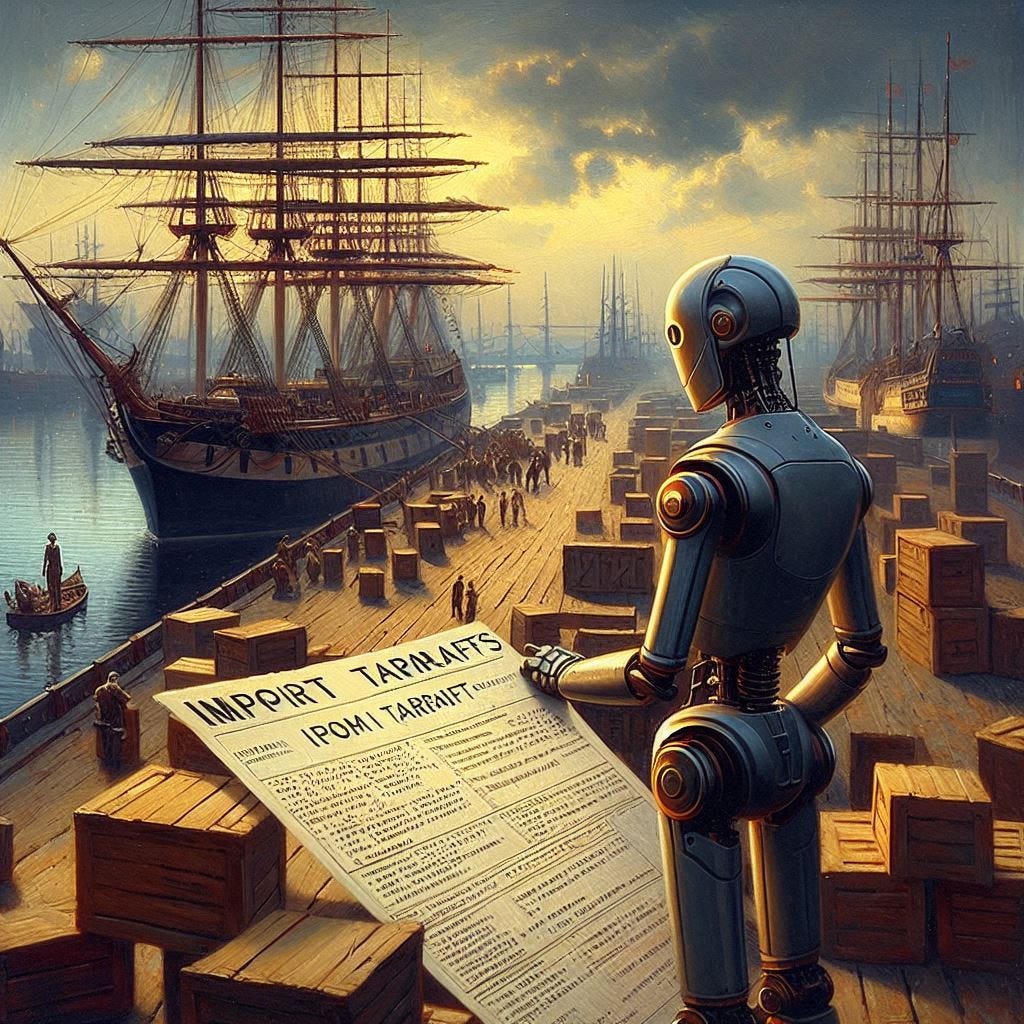Weekly Roundup: Not Just Tariff Turmoil
How tariffs affect the auto industry. Plus, economic warfare, warfare warfare, and African ingenuity.
It can be challenging to write a weekly Substack on technology regulation when, well, there isn’t much technology regulation going on. When you add empire-shattering tariffs onto the news cycle, pickings are even slimmer.
This week will have (mostly) what non-tariff news there is and give a few recommendations on what to read if economic warfare piques your interest.
The auto industry
America really is a nation of car owners, and aside from select cities and select demographics in select cities, most of us own and will continue to own cars. So what will tariffs and the probable higher prices do to US demand? Unclear. What about the ability of US automakers to compete with BYD? Probably cripple it.
After U.S. failure, Vietnam’s EV leader turns to markets dominated by Tesla and BYD
Argentina lifts tariffs on EVs, pitting local favorites against cheap Chinese imports
Economic warfare
The Trump tariffs are an example of one tool in the economic toolbox policymakers can wield to exert concessions and change behavior. How did the US get so good at this? What happens if “King Dollar” is ousted? Even though the President isn’t using tariffs as pure economic warfare (he seems to think the 1890s were the high water mark of economic thought, but then, so does “the left”), it’s still helpful to conceptualize the import levies as such, given that’s exactly how every other actor will respond to them as.
A review of Edward Fishman, “Chokepoints: American Power in the Age of Economic Warfare”
Underground Empire: How America Weaponized the World Economy
How Investing Will Change if the Dollar No Longer Rules the World
Ghost in the Machine: Coming to Terms with the Human Core of Unmanned War.
Unlike many articles on autonomous and drone-enabled warfare, this article is about the human and societal demands of future wars.
As Jon Lindsay recently noted in this journal, studies of future warfare generally address “the ways in which autonomous machines will behave in familiar wars,” but fail to imagine “the ways in which human societies will behave in unfamiliar futures.”
African startups are tackling the lack of addresses on the continent.
Today, 440 million Africans — about 1 in 3 people living on the continent — don’t have a formal address.
No house number, no street name, no postal code. Just signposts and landmarks. “Next to the blue kiosk after the mango tree” isn’t an address. But if you’re an average person in Africa, it’s the closest thing you’ve got. And without an address, you’re locked out of a lot:
You can’t get a bank loan.
You can’t receive deliveries.
You can’t register your land.
And in an emergency, help might never find you.


